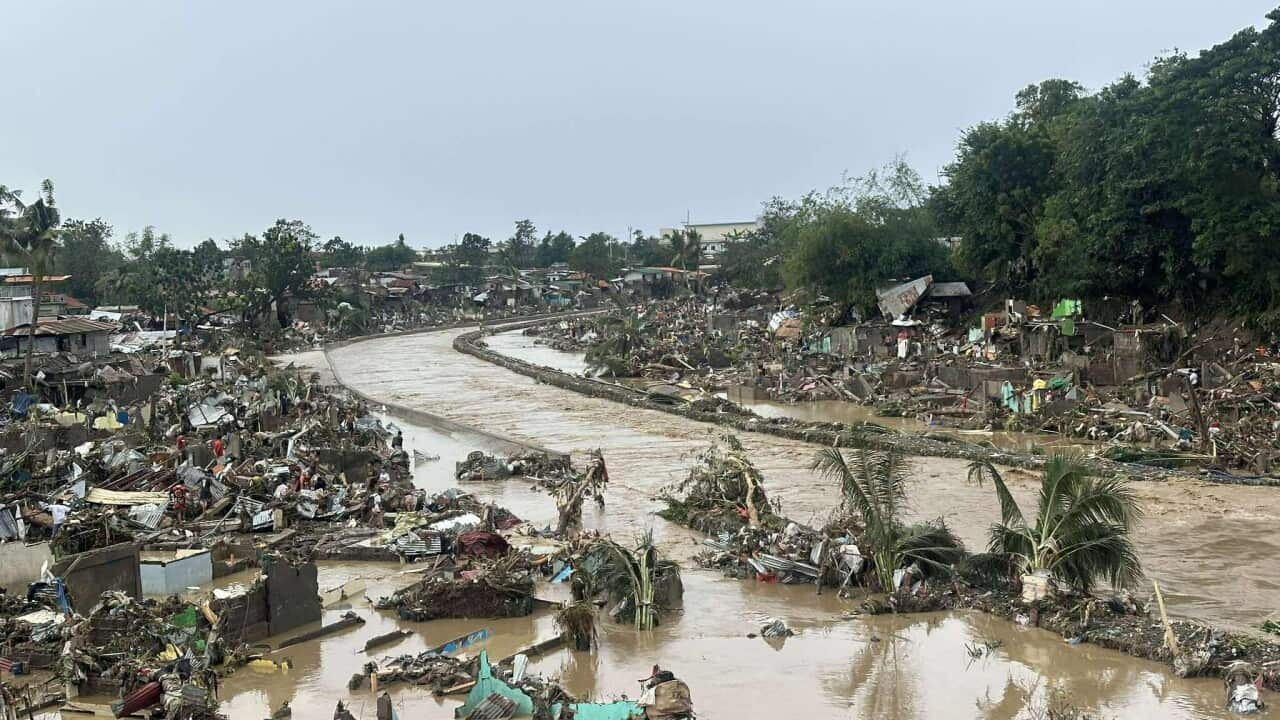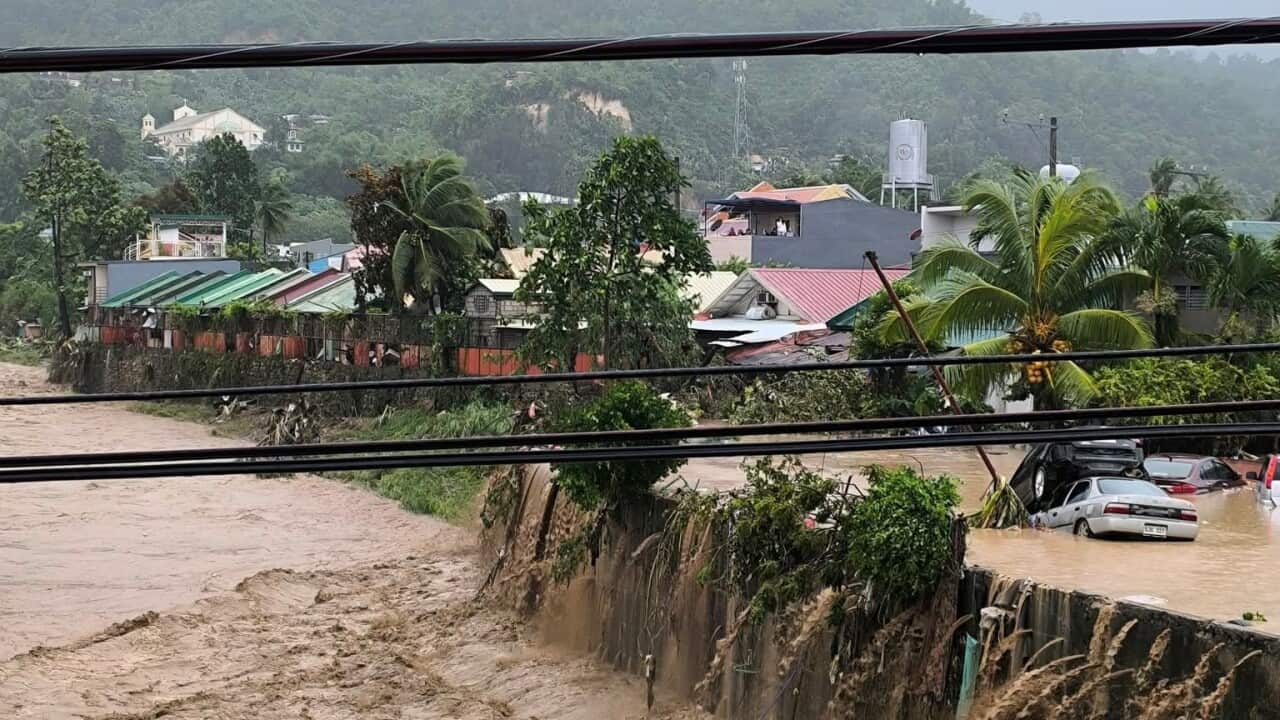Highlights
- US President Joe Biden, ensures 90 per cent of adults in the U-S will have their vaccination by April the 19th.
- Researchers in the United States say data on vaccine efficiency is showing the benefits of both the Pfizer and Moderna vaccines.
- The risk of infection fell 90 per cent by two weeks after the second shot, according to a study of just under 4,000 vaccinated U-S heathcare workers.
The World Health Organisation says investigations into "all hypotheses" about the origins of the coronavirus are continuing.
It comes as vaccination efforts in the United States reach new heights, despite a surge in new COVID-19 cases.
The World Health Organisation has responded to a leaked draft of its report into the origins of the coronavirus.
The report says the coronavirus was most likely transmitted from bats to another animal and then to humans, and is due to be released in the coming days. It says it's highly unlikely the spread was the result of a leak from a laboratory.
W-H-O Director General Tedros Adhanom Ghebreyesus says all other theories on the origins remain open and need further study.
"WHO has received the full mission report over the weekend. The report was sent under embargo, it is not public yet, to member states based on their request. All hypotheses are on the table and warrant complete and further studies, from what I have seen so far."
It comes as United States President Joe Biden says 90 per cent of adults in the U-S will be eligible for vaccination by April the 19th.
"My fellow Americans, look at what we have done in the past 10 weeks, no other country has come close, 100 million shots in less than 60 days. And now we're moving to the next one hundred million shots in just 40 days."
Mr. Biden warns it's still not time to celebrate. He has called on governors, mayors and local leaders to reinsate mask mandates.
"Please, this is not politics, reinstate the mandate if you let it down and businesses should require masks as well. The failure to take this virus seriously is precisely what got us into this mess in the first place, risk more cases and more deaths."
Researchers in the United States say data on vaccine efficiency is showing the benefits of both the Pfizer and Moderna vaccines.
The risk of infection fell 90 per cent by two weeks after the second shot, according to a study of just under 4,000 vaccinated U-S heathcare workers. U-S Centre for Disease Control and Prevention Director Rochelle Walensky says findings are consistent with clinical trial data for both vaccines.
" We continue to get more and more real-world evidence on the protection COVID-19 vaccines provide. And CDC scientists have been working since these vaccines were first authorised to expand the evidence supporting their effectiveness."
The C-D-C study comes weeks after data from Israel suggested that the Pfizer vaccine was 94 per cent effective in preventing infections nwhere there are no symptoms. Meanwhile, Canada is temporarily suspending the use of the Oxford-AstraZeneca COVID-19 vaccine for people under 55, following concerns it's linked to blood clots. The National Advisory Committee on Immunisations recommended the pause as a precaution, citing "substantial uncertainty" around the benefit of the vaccine for that particular age group. Several European countries that temporarily suspended their inoculation program have resumed them. Authorities in Canada say they believe the benefits outweigh the risks, but they want to see more data from Europe before they resume. In South America, Brazil's COVID-19 death toll is set to surpass the United States, which previously had the highest number of deaths in the world. A ten-day lockdown imposed at the end of last week is ongoing, with residents of Rio Di Janeiro unhappy with the situation.
"This lockdown it's not fair. There are other ways for us to try to revert this situation, but closing everything is not fair because we can't provide for our family. We have to work, we need money, we need to keep our routine, it's not fair what's happening."
United Nations Secretary General Antonio Guterres [[goo-TAIR-esh]] has addressed these concerns. Mr Guterres says financial constraints in poorer countries are affecting their ability to recover from the pandemic.
“Many developing countries face financing constraints that mean they cannot invest in recovery and resilience. Nor can they access the vaccines that provide the fastest route out of the pandemic. A global vaccination gap threatens everyone. In a global pandemic, we cannot separate economics and health. We are in danger of emerging from COVID-19 with a two-speed world. If half of the world cannot access vaccines, there is a danger of successive waves of COVID-19 over the next few years.”
A sudden rise in cases in Spain has led to the reinstating of restrictions ahead of Easter celebrations.
Dr Fernando Simón, Spain's head of health emergency coordination, says safety is "worth the effort."
"I've already said that it will depend on how restrictions are implemented but also how conscious we are during this Holy Week (week before Easter). Each week that goes by is a step closer to that good situation when we will be able to relax restrictions progressively. We just need to hang on a few weeks more. I think it is worth the effort."
Locals were angered by images of partying tourists that surfaced over the weekend, with Dr Simón saying the behaviour was "worrying."
In France, nearly 5,000 COVID-19 patients are in intensive care units around the country. Doctors in Paris have sounded the alarm, saying they're being forced to choose which patients to treat. Across the Channel in the United Kingdom, residents are seeing a glimpse of hope. U-K Prime Minister Boris Johnson has announced an easing of restrictions.
"Historically, at least there's been a time lag (with waves from Europe) and then we've had a wave ourselves. And that's why, you know, I just stress the importance of everybody maintaining the discipline that people have shown for so long and continuing with the cautious, but we hope irreversible, roadmap that we've set out."
Though new coronavirus cases and deaths are at their lowest levels in around six months, the U-K has had Europe's deadliest outbreak.
For health and support measures currently in place in response to the COVID-19 pandemic in your language, visit sbs.com.au/coronavirus




